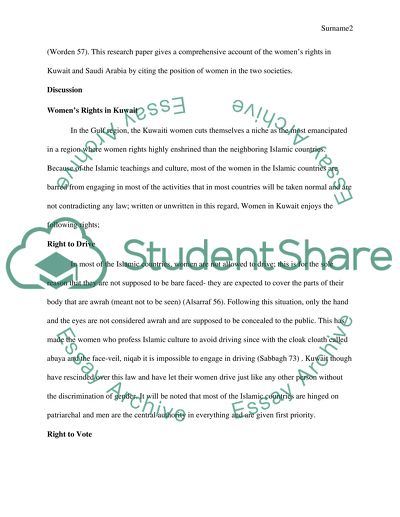Cite this document
(“Kuwaiti and Saudi Arabian Woman's Rights in Their Own Country Essay”, n.d.)
Kuwaiti and Saudi Arabian Woman's Rights in Their Own Country Essay. Retrieved from https://studentshare.org/gender-sexual-studies/1474860-kuwaiti-and-saudi-arabian-woman-s-rights-in-their
Kuwaiti and Saudi Arabian Woman's Rights in Their Own Country Essay. Retrieved from https://studentshare.org/gender-sexual-studies/1474860-kuwaiti-and-saudi-arabian-woman-s-rights-in-their
(Kuwaiti and Saudi Arabian Woman'S Rights in Their Own Country Essay)
Kuwaiti and Saudi Arabian Woman'S Rights in Their Own Country Essay. https://studentshare.org/gender-sexual-studies/1474860-kuwaiti-and-saudi-arabian-woman-s-rights-in-their.
Kuwaiti and Saudi Arabian Woman'S Rights in Their Own Country Essay. https://studentshare.org/gender-sexual-studies/1474860-kuwaiti-and-saudi-arabian-woman-s-rights-in-their.
“Kuwaiti and Saudi Arabian Woman'S Rights in Their Own Country Essay”, n.d. https://studentshare.org/gender-sexual-studies/1474860-kuwaiti-and-saudi-arabian-woman-s-rights-in-their.


